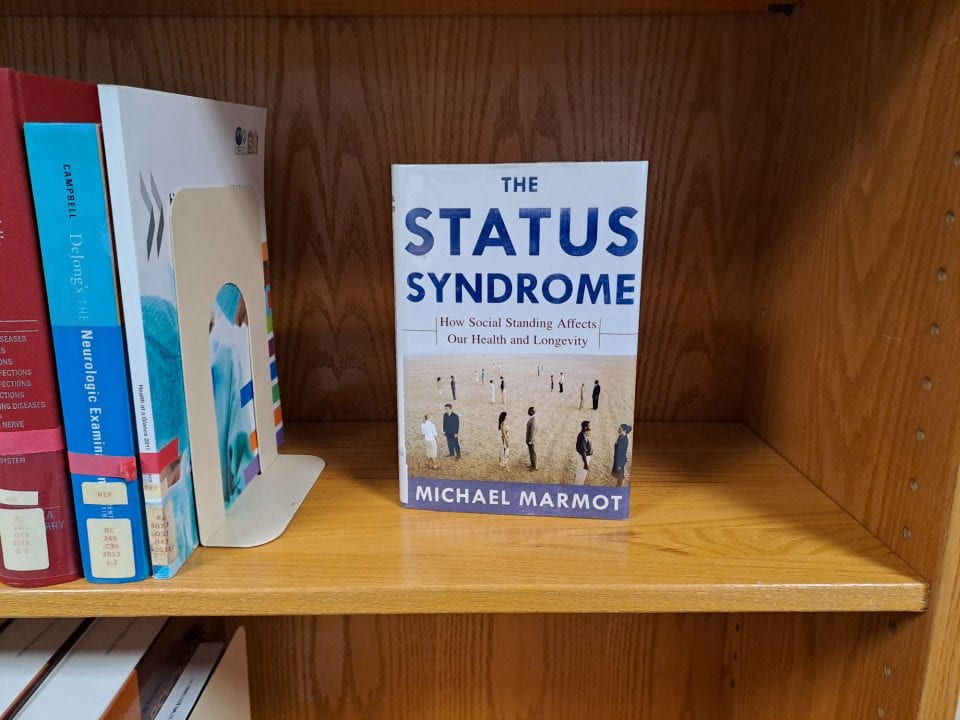With Humanities Highlights, Himmelfarb staff aims to spotlight useful books from our Humanities collection. This week, we’re showcasing “The Status Syndrome: How Social Standing Affects Our Health and Longevity” by Sir Michael Marmot.
About the Book: Based on the Whitehall Studies (ten year mortality studies into the British Civil Service), “The Status Syndrome” is the culmination of Sir Michael Marmot’s decades long research. In it, he concludes that autonomy and the ability to participate in society are key factors of health. Relentlessly, he investigates the usual suspects of poor health - smoking, processed foods, etc - and demonstrates how they don’t fully account for health disparities. A blend of medical research and public health recommendation, “The Status Syndrome” demonstrates a keen intersection of analysis and application.
Reasons to Read: Beyond being highly accessible, Michael Marmot brings a unique perspective as the original leader of the Whitehall studies. And since the studies themselves focus solely on the middle class, the book avoids the obvious (ex: of course dire poverty leads to poor health outcomes).
It’s a book that goes beyond left and right wing politics, and, in fact, might challenge either value-set. It can be read selfishly - i.e. what are the ingredients for a healthy/quality life, and how do I position myself? Or, it can be read selflessly - i.e. how can we organize society so others can have a healthy/quality life?
Reasons to Avoid: The book takes a commonsense idea - higher status correlates tightly with better health outcomes - and takes the magnifying glass to its nuances. But if you prefer easily graspable ideas without looking into the examples, then “higher status correlates tightly with better health outcomes” might be enough for you.
If you’re a policy-junky, you can skim the Acheson report online (fully titled the “Independent Inquiry into Inequalities in Health Report”), from which Marmot derives his government recommendations.
(Not) Fun Facts:
- In an eye-opening example, Marmot features our very own D.C. as an example of status gradient. “The status syndrome can be illustrated by a short ride on the Washington, D.C., subway. Travel from the southeast of downtown Washington to Montgomery County, Maryland. For each mile traveled, life expectancy rises about a year and a half. There is a twenty-year gap between poor blacks at one end of the journey and rich whites at the other” (Marmot, p. 2).
References
Marmot, Michael. (2005). The Status Syndrome. Times Books.



